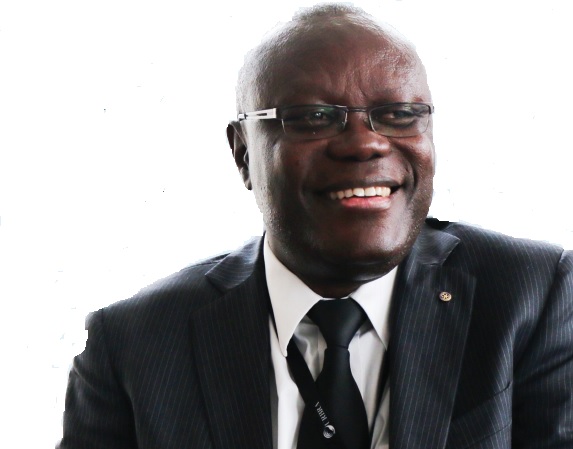
Kampala, Uganda | JULIUS BUSINGE | Mr. Martin A. Nsubuga is the Acting Chief Executive Officer (CEO) at the Uganda Retirement Benefits Regulatory Authority (URBRA). He takes up the position with a wealth of experience to ensure that the gains of the past five years are sustained. He is concurrently serving as the Director of Supervision and Compliance. He has been pivotal in setting up URBRA’s institutional capabilities. He spoke to The Independent’s Julius Businge about the industry’s outlook.
Uganda’s pension sector is evolving. What should the market expect from your leadership?
When this institution was being set up, the government hoped to expand the scope and efficiency, bring all the entities that were once unregulated under the armpit of the regulator. The mandate of URBRA is to ensure that members’ savings are secure. We have made great strides in creating a robust supervisory framework and I intend to leverage on these achievements while ensuring that scheme operations are effective and efficient. I will have to enforce the law as it has been given to us to implement. URBRA is less than six years old, and as such, we cannot start by enforcing regulation from the onset. The first phase which covered two years was bringing onboard all the entities that are required to be regulated and ensuring that they comply with all the requirements. We have passed that phase.Now we are looking at a situation of enforcing the law which we will do gradually.
What kind of management philosophy are you using to spearhead these efforts?
I try to avoid micro managing and let my employees work independently. We have been building capacity with focus on the needs of the Retirement Benefits Sector. I expect my staff to continually be responsive to the requirements of the regulatory business culture and always uphold professional standards.
Briefly share your description of Uganda’s Pension Sector?
Currently, about two million of Uganda’s working population is covered under some form of retirement benefits arrangement. The sector is comprised of National Social Security Fund (NSSF), the Public Service Pension Scheme, Armed Forces Pension Scheme, Parliamentary Pension Scheme, Supplementary Voluntary Occupational Schemes, Supplementary Voluntary Informal Sector Schemes and the Social Assistance Grant for Empowerment (SAGE). The sector is covering less than 10% of the population leaving out 90%. What I see as a long term goal for policy makers would be to champion a policy to expand and have other people onboard. In terms of regulation, there are Funds established under the Act of Parliament and those established under Trustee Deeds. We have 63 licensed pension schemes.
Cabinet recently shelved the move to open up the sector for more players to compete with the NSSF and now plans to amend the NSSF Act to include proposed reforms in the bill. What is your take on that?
Cabinet’s role is to direct government policy and make decisions about national issues. Ours is to implement government policy. We shall continue to ensure that all schemes including NSSF are capable of delivering strong governance, sustainability and full transparency. That said the Retirement Benefits Sector requires a comprehensive package of reforms.
The move is expected to enhance the ability of stakeholders to identify appropriate supportive policy and legal reforms in the Retirement Benefits Sector. In any case, the mandate of the Authority will not change. What we want is a market and regulatory environment that will deliver a well-functioning Retirement Benefits System, which protects the interests of members and their beneficiaries.
The only difference is that NSSF has the largest asset base (Shs9 trillion). The other schemes have around Shs1.6 trillion today. Before URBRA was established, these other schemes were not known.Whether the sector opens up or not, URBRA will still regulate NSSF. Besides that, the government has been monitoring NSSF. The regulatory policy that we have today is still good enough to deliver results whether there is one player or many. In terms of policy, there is the Ministry of Gender which is responsible for social protection as an umbrella and Ministry of Finance which is responsible for the pension funds and schemes establishment.
The two consult us where possible and we guide them accordingly. In terms of regulation, there is URBRA Act, the NSSF Act, Public Service Pensions Act, Parliamentary Pension Act and Trustee Deeds. These acts have a lot of regulations which we have championed and we still continue to develop more new regulations to guide the sector in many areas. Generally speaking, we have a strong regulatory framework because we have not had serious complaints that have come on our way.
 The Independent Uganda: You get the Truth we Pay the Price
The Independent Uganda: You get the Truth we Pay the Price



